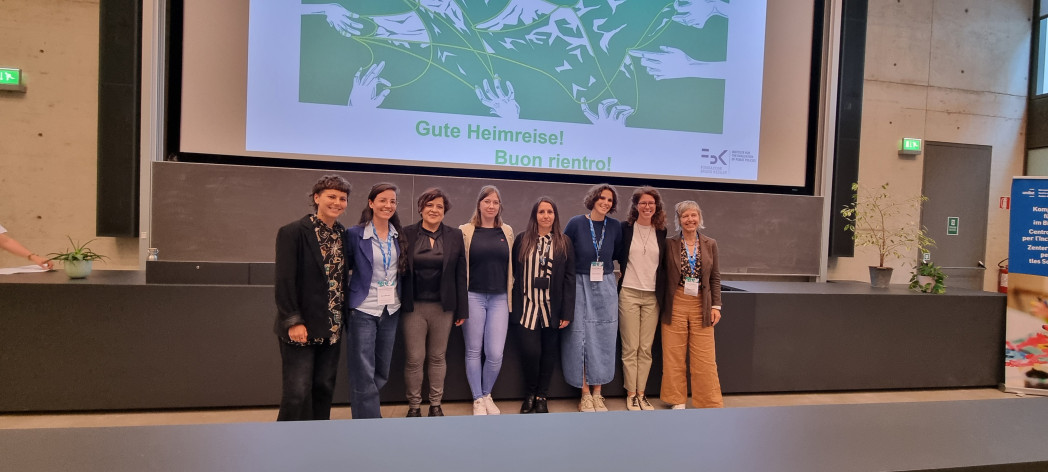
The 9th Conference "Didattica e Inclusione scolastica – Inklusion im Bildungsbereich"
For the ninth time, the conference Didattica e Inclusione scolastica – Inklusion im Bildungsbereich was organized by the Competence Centre for School Inclusion with the support of the Bruno Kessler Foundation, this time on the theme of education and training oriented toward inclusion, sustainability, and justice. Most participants came from the Province of Bolzano, Trentino, and the rest of Italy, while about one-fifth came from German-speaking countries such as Germany and Austria. The participants were equally split between the academic field and educational practice.
In a dense program of short presentations, experts introduced new research projects and pedagogical approaches on the topics of educational equity, education for sustainable development, and democratic education. Various workshops also invited participants to exchange and test concrete pedagogical-didactic concepts and strategies.
During the opening plenary session on Friday, Prof. Anna Granata from the University of Milano Bicocca and Prof. Dr. PhD Timo Dexel from the University of Münster gave inspiring keynotes on the themes of creativity and democracy, as well as the relationship between inclusive didactics and social inequality. On Saturday, two more highly interesting main presentations followed. Prof. Dr. PhD Simone Seitz, Director of the Competence Centre for Inclusion in Education, and researcher Dr. PhD Giulia Consalvo provided insights into initial findings from an ongoing scientific support study conducted by the Competence Centre as part of the quality initiative “Wege in die Bildung 2030” by the German Education Directorate of the Province of Bolzano, focusing on “Equality and Difference in the Context of Inclusive School and Instructional Development.” Following this, Dr. Davide Azzolini from the Bruno Kessler Foundation presented and reflected on the findings of several studies under the overarching theme of educational poverty.
Overall, the conference clearly demonstrated that an inclusive education system has particularly high potential for delivering sustainable, equitable, and high-quality education. However, this potential does not automatically unfold – it requires critical reflection and a high level of professionalism.
The organizational team of the Competence Centre is pleased with the strong interest and successful outcome of this year’s conference.
As with previous editions, the next step is the planned publication of a bilingual open-access volume, aimed equally at academia and educational practice.